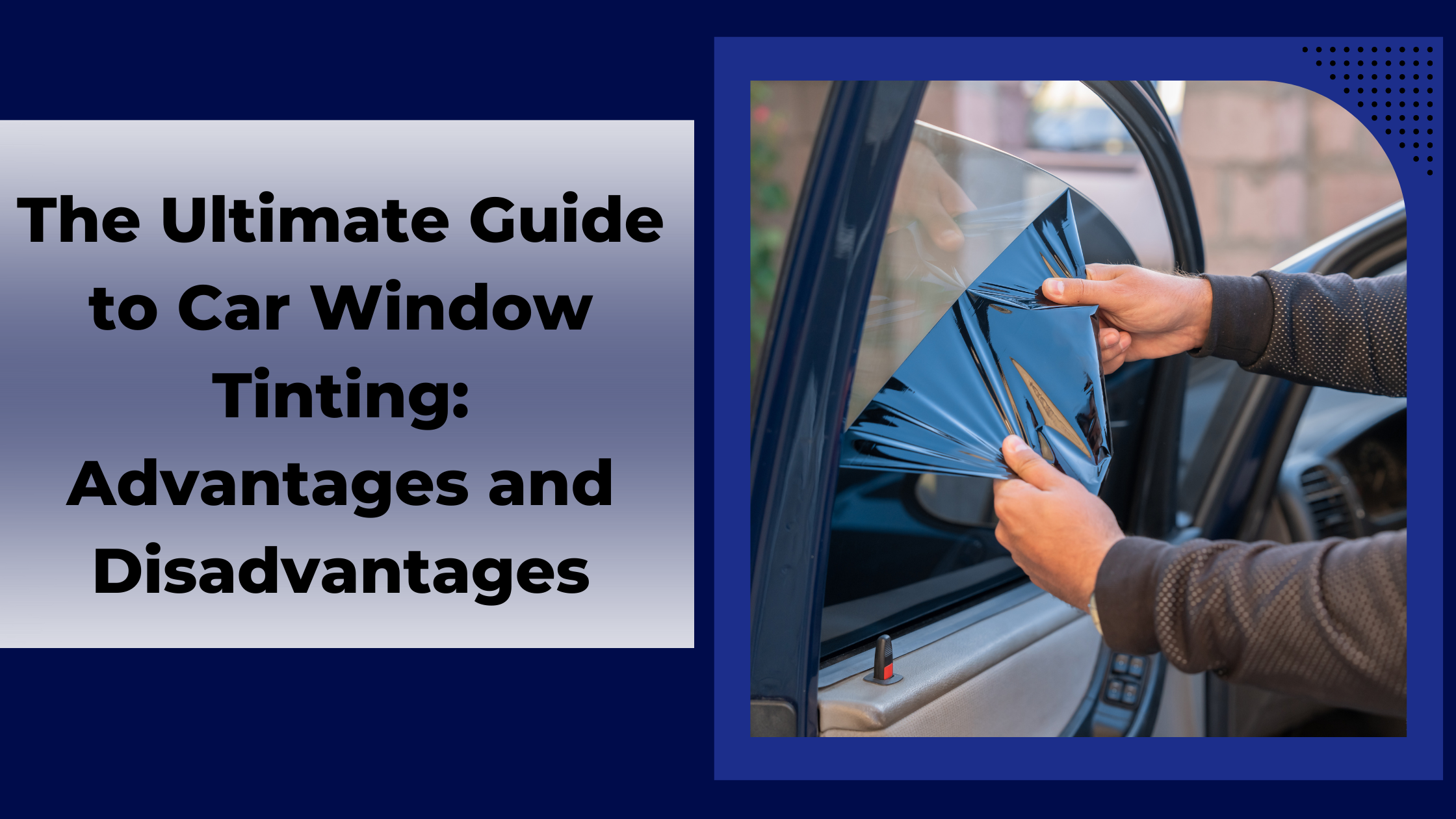The Ultimate Guide to Car Window Tinting: Advantages and Disadvantages

Strong 8k brings an ultra-HD IPTV experience to your living room and your pocket.
Car window tinting has become increasingly popular among vehicle owners, and for good reason. Whether you're looking to enhance your car's aesthetics, improve comfort, or protect your interior, window tinting offers a wide range of benefits. However, like any modification, it also has its downsides. In this comprehensive guide, we'll explore the advantages and disadvantages of car window tinting, helping you decide whether it's the right choice for you.
What is Car Window Tinting?
Car window tinting is the process of applying a thin, transparent film to the interior side of a car's windows. These films are made from materials like polyester and can vary in thickness, color, and reflective properties. The primary purpose of window tinting is to reduce the amount of sunlight, UV rays, and heat that enter your vehicle.
Common Types of Car Window Tint Films:
- Dyed Window Tint – A budget-friendly option that absorbs sunlight and reduces Glare.
- Metalized Window Tint – Provides heat resistance and durability with a shiny finish.
- Ceramic Window Tint – A premium option offering superior heat rejection and clarity without interference with electronic signals.
- Carbon Window Tint – Known for its sleek matte finish and high performance.
- Hybrid Tint – Combines dyed and metalized properties for balanced performance.
Advantages of Car Window Tinting
Window tinting offers several advantages that go beyond just aesthetic appeal. Here's why it's worth considering:
1. Protection from Harmful UV Rays
- Car window tinting can block up to 99% of harmful UV rays.
- Prolonged UV exposure can lead to skin damage and even skin cancer. Window tinting acts as a protective shield, reducing these risks for you and your passengers.
2. Reduces Heat Inside the Vehicle
- Tinted windows significantly reduce heat by blocking infrared radiation. This is especially beneficial in hot climates.
- Cooler interiors improve comfort and reduce the need for excessive air conditioning, which can save fuel.
3. Enhances Privacy and Security
- Tinted windows make it harder for prying eyes to see inside your car, protecting your belongings from potential theft.
- Enhanced privacy can provide peace of mind, especially in urban or crowded areas.
4. Protects the Interior
- Prolonged exposure to sunlight can fade upholstery, crack dashboards, and damage leather seats.
- Window tinting helps preserve your car's interior, maintaining its value over time.
5. Reduces Glare
- Glare from the sun or headlights can be distracting and dangerous while driving.
- Window tinting minimizes Glare, improving visibility and overall safety on the road.
6. Enhances Aesthetic Appeal
- A well-tinted car exudes sophistication and style. It can transform your vehicle's overall appearance, giving it a sleek and modern appearance.
Disadvantages of Car Window Tinting
While the benefits are compelling, there are also some downsides to consider:
1. Cost of Installation
- High-quality tinting films, especially ceramic or carbon options, can be expensive.
- Professional installation adds to the cost but ensures durability and proper application.
2. Legal Restrictions
- Different regions have specific laws regarding the permissible level of tint on car windows. These regulations can vary by state or country.
- Dark tints may lead to fines or failed vehicle inspections if they don't comply with local laws.
3. Potential Signal Interference
- Metalized tints may interfere with electronic signals such as GPS, mobile phones, and radio reception.
- Opting for ceramic or carbon tint can eliminate this issue but at a higher cost.
4. Limited Night Visibility
- Dark tints can make it difficult to see clearly at night, potentially impacting driving safety.
- Choosing a tint with moderate darkness can help balance privacy and visibility.
5. Maintenance and Care
- Tinted windows require special cleaning products to prevent damage to the film.
- Improper care can lead to bubbling, peeling, or discoloration over time.
Is Car Window Tinting Worth It?
Whether car window tinting is worth the investment depends on your needs and priorities. If you live in a sunny or hot climate, the benefits of reduced heat, UV protection, and interior preservation may outweigh the costs. However, if you frequently drive at night or live in an area with strict tinting laws, you'll need to weigh the pros and cons carefully.
How to Choose the Right Window Tint
Understand Your Needs: Are you prioritizing UV protection, heat reduction, or privacy? Knowing your goals will help you choose the right tint.
- Research Local Laws: Check the legal limits on window tint darkness and reflectivity in your area.
- Select the Right Film: For premium performance, ceramic tints are highly recommended. For a budget-friendly option, dyed tints may suffice.
- Professional Installation: While DIY kits are available, professional installation ensures a flawless finish and long-lasting results.
Caring for Tinted Windows
- Proper maintenance can extend the lifespan of your window tint:
- Use mild, ammonia-free cleaners to prevent damage to the film.
- Avoid using abrasive cloths or brushes when cleaning.
- Allow the tint to cure fully (usually a few days) before rolling down the windows.
Conclusion
Car window tinting offers a wide array of benefits, from protecting your health and car interior to enhancing privacy and aesthetics. However, it's essential to consider the potential drawbacks, such as cost, legal restrictions, and maintenance requirements. By understanding your specific needs and doing thorough research, you can make an informed decision about whether window tinting is right for you.
Note: IndiBlogHub features both user-submitted and editorial content. We do not verify third-party contributions. Read our Disclaimer and Privacy Policyfor details.


